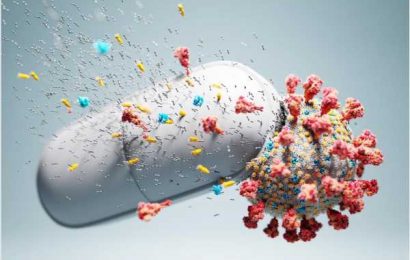With over 127.8 million cases of coronavirus disease 2019 (COVID-19) already documented, and many more millions that have undoubtedly gone undetected, the current pandemic shows no sign of abating soon. Caused by the severe acute respiratory syndrome coronavirus 2 (SARS-CoV-2), this outbreak has been marked by the sheer scale of variation in clinical phenotype.
A new study deals with the genetic contribution to severe disease following infection with this virus, showing that the association of severity with specific human genes described in an earlier study is not obvious.
.jpg)
SNPs linked with severity of disease?
The paper, available on the medRxiv* preprint server, explores the 12 single nucleotide polymorphisms (SNPs), identified in an earlier study, as being linked to COVID-19 severity.
In particular, the earlier study claimed that eight SNPs were associated with the risk of intensive care unit admission. These eight SNPs were scattered over the genome.
Similarly, a set of six SNPs were supposed to be linked to higher odds of hospitalization. These were identified from a meta-analysis of overlapping SNPs from several human genomic databases – GenOMICC, Host Genetics Initiative and 23andMe. Of the two panels, two SNPs were common to both.
This earlier study decided on the significance of the SNPs using population controls. These conclusions were evaluated on data from the UK Biobank.
Study details
The researchers looked at whether these two sets of SNPs were capable of predicting severe COVID-19 following infection with the virus. In order to do this, they combined the two panels as polygenic risk scores (PRSs), helping to predict the risk of severe disease.
Of over 8,600 active participants, with a positive test for the virus, SNP test results were available for over 8,300 of them. Rather than query the individual records for objective scores of disease severity, the investigators decided that tests from an inpatient setting indicated severe disease (27%).
The rest, from an outpatient setting, were from mild or asymptomatic cases (73%).
What were the results?
For each of the SNPs, the researchers calculated the PRSs from the adjusted risk estimates. Of the 12 SNPs, three were linked to severe disease, namely, rs71325088, rs73064425, and rs9380142. Additionally, one was marginally significant.
However, all showed smaller effect sizes in the current analysis, compared to the original report. The odds of severe disease were increased by only 7% to 17% in the current study, compared to odds between 30% and 200% in the Pairo-Castineira et al. report.
Both PRSs were, however, unable to distinguish COVID-19 cases from controls, showing a very small association with the risk of severity. This may be because of the use of population controls.
The problem with using population controls
When population controls are used, they are expected to bias the observed associations towards the null. If so, the substitution of asymptomatic or mild COVID-19 patients as controls should increase the effect size of the putative risk-associated loci found in population controls.
This has not been shown in the current analysis. An earlier COVID-19 Host Genetics Initiative Release Manhattan plots also failed to show common regions of association except for the 3p21.31 locus. In these plots, this locus was the sole region of association in the analysis of Hospitalized COVID-19 patients vs. Non-hospitalized COVID-19 patients.
Conversely, in the Hospitalized COVID-19 vs. population controls meta-analysis, there were seven areas of association.
Of these, there were three overlapping regions with the plot for COVID-19 vs. population controls meta-analysis, where the former included all COVID-19 infections. This includes the 3p21.31 region.
The 3p21.31 locus has been picked up in earlier population control-based studies too, and two of the SNPs, rs71325088 and rs73064425, mentioned in the previous report, are in this region. These two are also found to be associated when infected individuals are used as the controls, though the size is smaller.
In other words, SNPs supposed to be a marker of severe COVID-19 may just have been associated with susceptibility to the virus.
Implications
The researchers suggest that the use of population controls in the older paper could have led to the identification of SNPs that are associated with the risk of infection with SARS-CoV-2 rather than with disease severity. This issue has been pointed out by other scientists when using population controls.
Thus, large studies with population controls may not be useful in uncovering the risk factors for severe COVID-19. “We urge care in the interpretation of results from large-scale studies that use population controls and invite discussion on this issue.”
*Important Notice
medRxiv publishes preliminary scientific reports that are not peer-reviewed and, therefore, should not be regarded as conclusive, guide clinical practice/health-related behavior, or treated as established information.
- Murphy, N. M. et al. (2021). Genetic associations with severe COVID-19. medRxiv preprint. doi: https://doi.org/10.1101/2021.03.29.21254509, https://www.medrxiv.org/content/10.1101/2021.03.29.21254509v1
Posted in: Medical Science News | Medical Research News | Miscellaneous News | Disease/Infection News | Healthcare News
Tags: Coronavirus, Coronavirus Disease COVID-19, Genes, Genetic, Genetics, Genome, Genomic, Intensive Care, Locus, Nucleotide, Pandemic, Phenotype, Research, Respiratory, SARS, SARS-CoV-2, Severe Acute Respiratory, Severe Acute Respiratory Syndrome, Single Nucleotide Polymorphisms, Syndrome, UK Biobank, Virus

Written by
Dr. Liji Thomas
Dr. Liji Thomas is an OB-GYN, who graduated from the Government Medical College, University of Calicut, Kerala, in 2001. Liji practiced as a full-time consultant in obstetrics/gynecology in a private hospital for a few years following her graduation. She has counseled hundreds of patients facing issues from pregnancy-related problems and infertility, and has been in charge of over 2,000 deliveries, striving always to achieve a normal delivery rather than operative.
Source: Read Full Article


